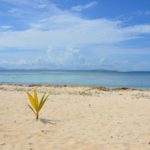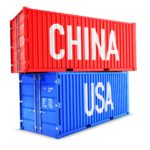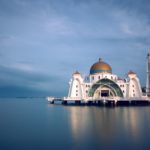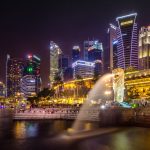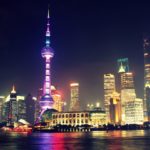ASEAN Summit briefing – Getting down to business
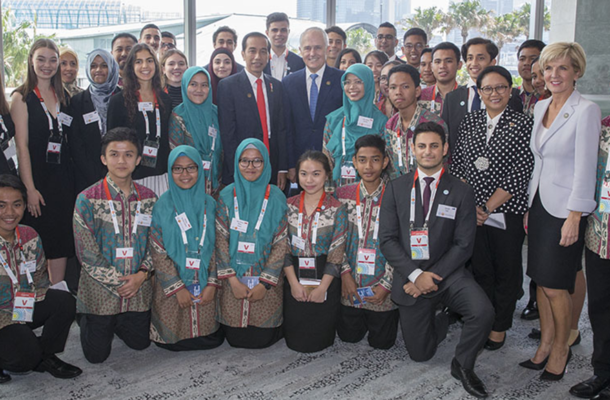
The Turnbull government has responded cautiously to Indonesian President Joko Widodo support for Australia joining ASEAN. But the focus at the Summit will now shift to winning stronger anti-terrorism cooperation across the region and identifying potential new business cooperation.
Institutional business links between Australia and ASEAN have been strengthened in the days leading up to the Leader’s Summit in a bid to cut through the cultural differences which are often said to hold back new trade and investment.
Digital trade
Australia announced a digital trade standards initiative to support the development, adoption and use of international digital trade standards. Trade minister Steve Ciobo said: “Harmonised international standards applied across our region will reduce the costs for Australian business when exporting and importing products and services.”
The small and medium enterprise conference on Friday saw much discussion of how the rapid uptake of digital devices had fostered both technical and cultural leapfrogging in regional business practices.
Vietnamese entrepreneur Le Hoang Uyen Vy said digital marketing techniques made it easier than before to test products across national borders and even into second tier cities without having to set up costly new infrastructure.
Councils meet
Several Australian peak industry groups held their first meeting with the Kuala Lumpur-based ASEAN Business Advisory Council (ABAC) on Thursday in an attempt to foster new networks and understanding of the ASEAN Economic Community.
The gathering heard briefings from the CSIRO on research it is doing in northern Australia on agricultural supply chain issues and from the Australian Digital Commerce Association on the role blockchain technology might play in digital commerce.
Australian Chamber of Commerce and Industry international director Bryan Clark said the ABAC members had stressed how they were more interested in the potential for new services trade and investment rather than resources trade.
“They had the sense that Australia was still relying on its commodities strength when they thought ASEAN business was moving on,” he said. The ASEAN businesspeople also complained about business visa access to Australia and pressed the Australian participants to support a new ASEAN visa system.
Entrepreneur networks
The NSW government is providing financial support to a scheme to bring young Southeast Asian entrepreneurs into the Sydney start-up scene. And the relatively new Australia-ASEAN Business Council has developed a link with the ASEAN Young Entrepreneurs Council to increase contact between start-ups in Australia and Southeast Asia.
The Singapore-based founder of accelerator company Gemstar, Gemma Manning, told a gathering of ASEAN entrepreneurs that too many Australian start-ups failed in the region because they didn’t understand enough about the local market conditions.
Better from the inside
A survey of businesses operating in ASEAN suggests they have more positive outlook about the economic growth and integration in the region than the broader universe of businesses in Australia.
The survey by AustCham ASEAN found that 87% of participants planned to increase their trade or investment in the region in the next five years, while almost none planned to reduce their operations.
And the third edition of the survey conducted via bilateral business chambers in the ASEAN countries showed a more optimistic attitude about growth prospects than the two previous editions. Forty-four per cent of respondents expect activity to increase compared with 26% in 2016.
The three largest drivers of growth are the growing consumer class, regional integration and improvements in infrastructure. The latest survey was supported by the Australia-ASEAN Council.
Singapore Foreign Minister Dr Vivian Balakrishnan at the Asia Society Australia’s special ‘Leaders on Asia’ dinner in partnership with Singtel Optus shared his assessment of the geopolitical and geoeconomic landscape in Asia with the CEOs and Chairs of Australia’s leading companies on Thursday night.
Freezing ‘black money’
It is hard to go past AUSTRAC’s Codeathon for an example of how Australia has made this ASEAN Summit “special” with some unusual but practical things happening on the sidelines. The financial watchdog says the winning team Project Iceberg managed to come up with new ways of monitoring illicit financial activity going on in real time … and all in 32 hours.
The Codeathon gave teams drawn from private and public sectors and universities across the region a series of challenges dealing with cybercrime and terrorism financing. The practical cooperation at the technical should help underpin the Leaders Summit plan for greater government cooperation on terrorist financing.
Turnbull plays down Australian ASEAN membership
The Australia government has reacted cautiously to Indonesian President Joko Widodo’s support for Australian joining ASEAN in apparent recognition some other countries are unlikely to support the idea.
Prime Minister Malcolm Turnbull said: “We’re really honoured and touched by the warmth of his remarks about Australia … But ASEAN matters are matters for ASEAN. We have the greatest of respect for ASEAN, the way it reaches it’s own conclusions.”
Foreign minister Julie Bishop said “it would be a matter for all 10 ASEAN states to consider the admission of new members and should such an honour be extended to Australia, of course we would consider it very seriously”.
Meanwhile the two countries are giving different signals over the outlook for a bilateral free trade agreement with Widodo suggesting he would push officials to conclude “technical issues” this weekend. However, speaking before Widodo’s comments, Trade Minister Steve Ciobo only said he hoped the agreement could be settled this year. The two countries had previously aimed to finish it late last year.
Defining the Indo-Pacific
Australia and Indonesia are planning officials talks to discuss their approaches to the Indo-Pacific in a sign that Australia’s embrace of this new geo-political terminology might face some questioning within Southeast Asia.
A statement after annual foreign and defence minister talks on Friday on the ASEAN summit sidelines said: “Indonesia acknowledged Australia’s Foreign Policy White Paper and noted the synergies with Indonesia’s own vision for the region. Australia was grateful for the briefing Indonesia provided on its own developing Indo-Pacific vision.”
But at the ASEAN-Australia Dialogue earlier this week some participants ASEAN countries raised questions about Australia’s embrace of the Indo-Pacific in last year’s Foreign Policy White Paper and suggested ASEAN where still assessing their position.
The ministers also agreed to finalise a plan for joint development cooperation in the Pacific suggesting joint concern about China’s increasingly active role in the South Pacific. Separately Indonesia and Australia signed a Maritime Cooperation Plan of Action which encompasses 85 separate activities involving 17 Australian and 20 Indonesian agencies.
Vietnam goes shopping
Vietnam underlined its rising role within ASEAN (See Asia Briefing #4 – Special Summit Guide) a day after signing its Australian Strategic Partnership with a packed gathering in a Westin Hotel Ballroom on Friday to witness almost 20 cooperation agreements being signed.
They ranged widely from coal shipment to cancer management, but aviation dominated consistent with Vietnam’s growing tourism popularity with 400,000 Australians visiting last year. Vietjet Air will be flying direct to Brisbane by next year with plans for more direct flights.
Prime Minister Nguyen Xuan Phuc told the assembled crowd: “I call on investors to be quick to come to Vietnam or else we will not wait and others will take the opportunities away.”
For more information, join the Asia Society – Australia, the country’s leading national centre for engagement with Asia.

Greg Earl is an award-winning author, journalist and editor and a board member of the Australia-ASEAN Council. He edits the Asia Society’s monthly ‘Asia Briefing’.

